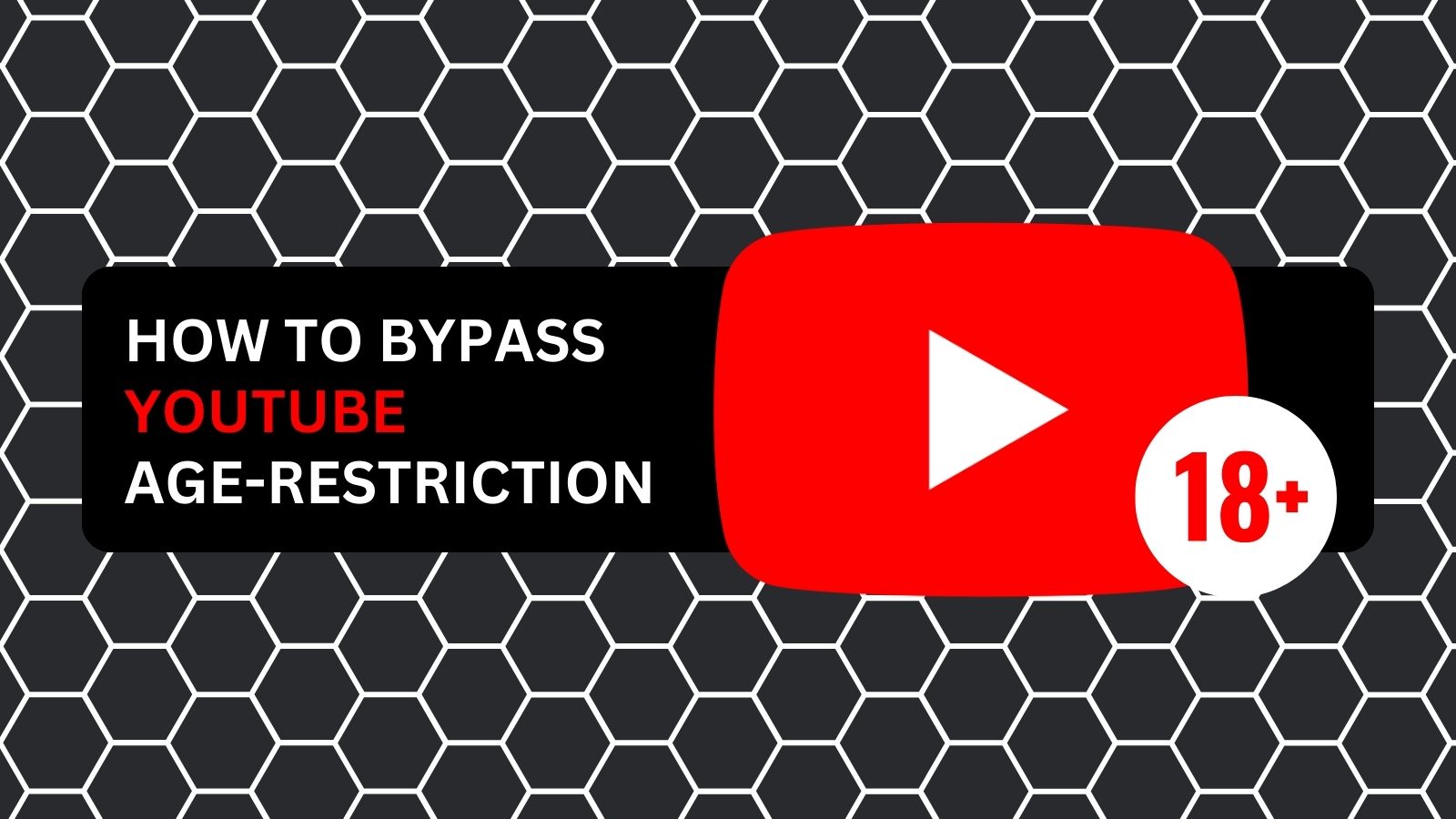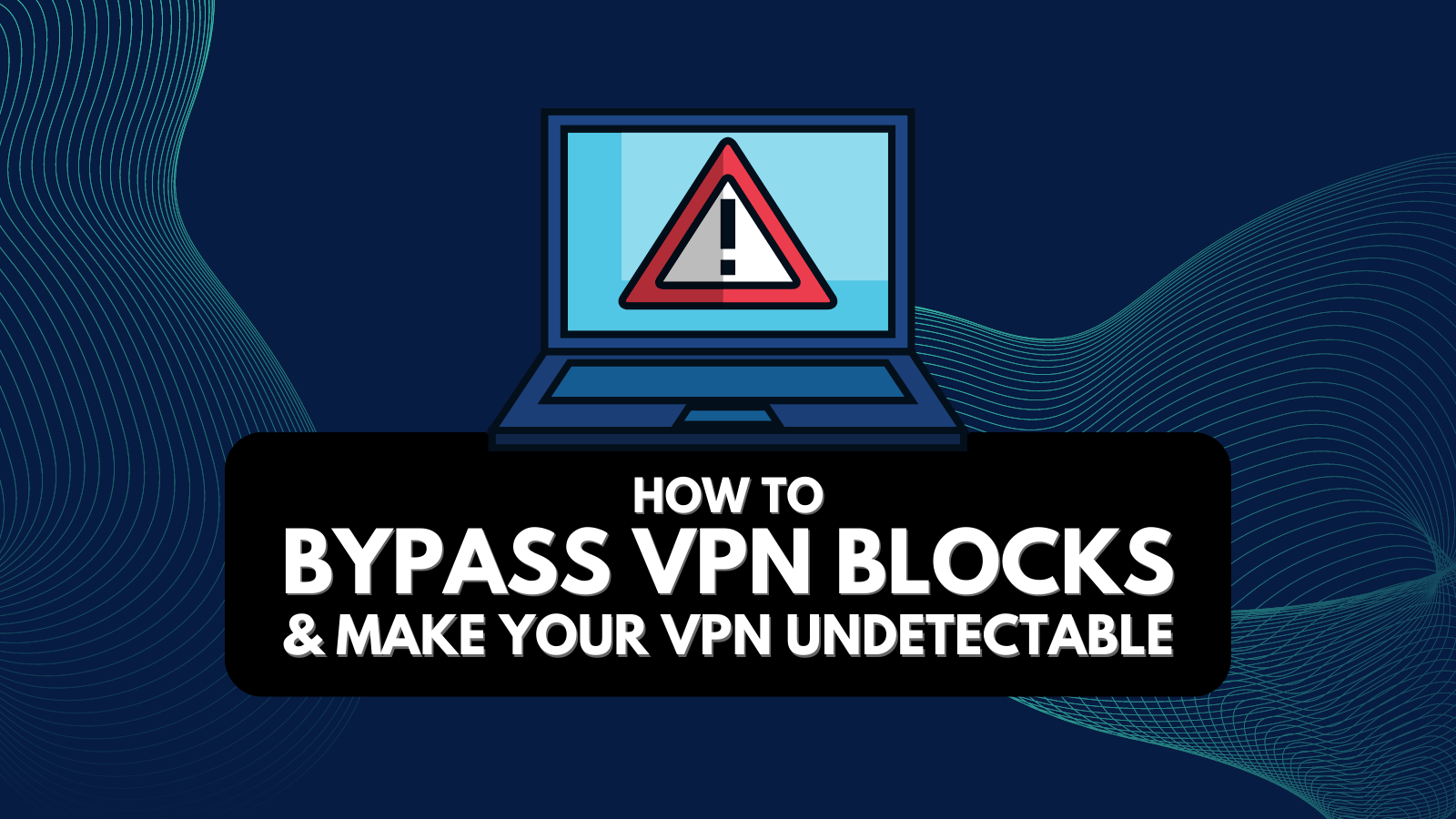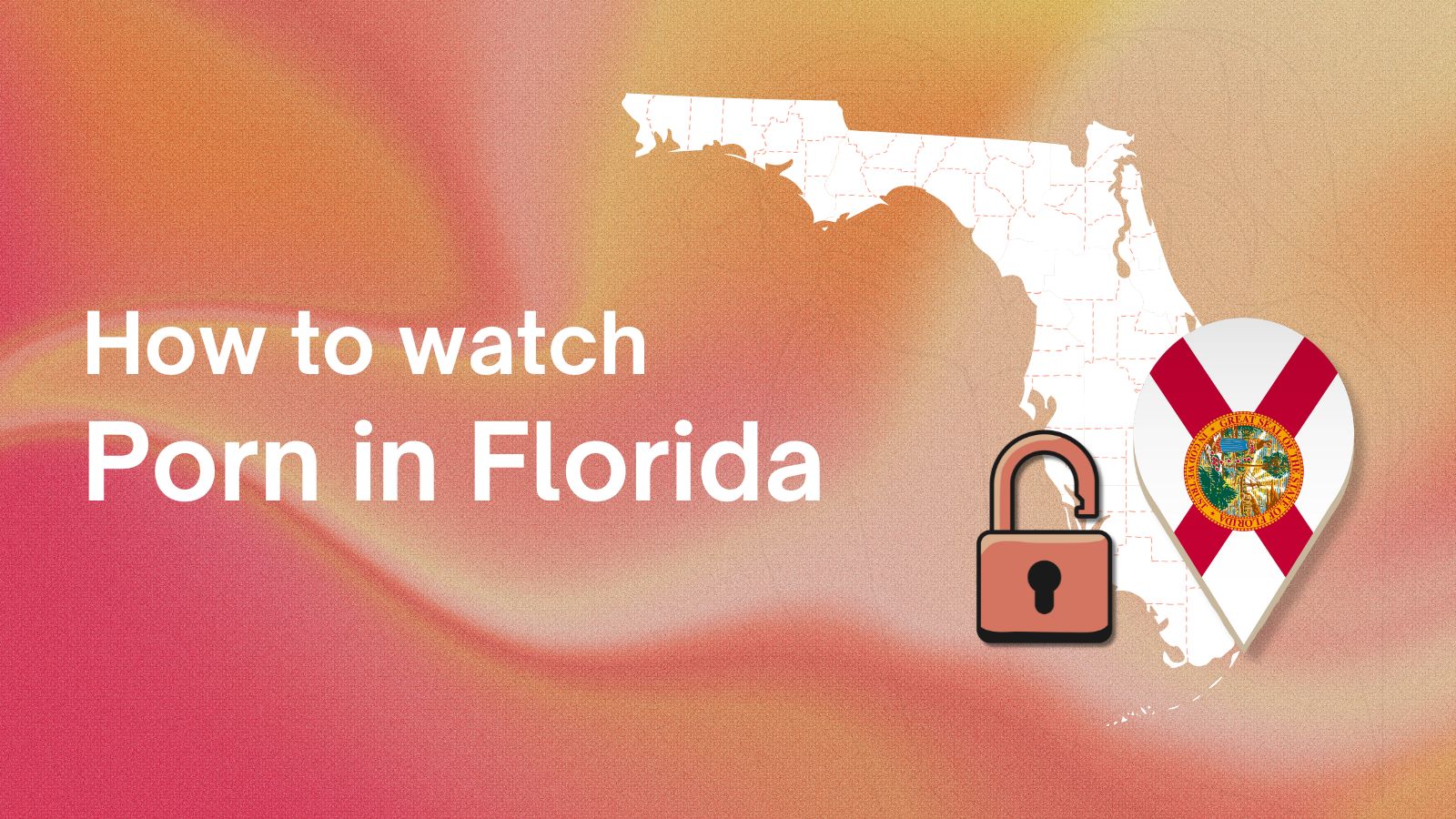
When you purchase through links on our site, we may earn an affiliate commission. Here’s how it works.
Why Does My VPN Keep Disconnecting? Here’s How to Stop It
It can be frustrating when your VPN keeps disconnecting while watching a movie, gaming, or during other Internet activities. More importantly, if a VPN disconnects suddenly, your sensitive data can leak on the Web. This can happen due to many reasons, which aren’t always apparent.
Issues like a bad Internet connection are easy to recognize. However, other less apparent reasons can take hours of troubleshooting if you don’t know what to look for. But don’t worry because we’re here to help you out.
In this article, we will discuss all the major reasons why your VPN keeps turning off. After that, we will touch on some general troubleshooting methods. In the end, you will learn how to stop your VPN from disconnecting on your iPhone, Android, and Windows before we finish with answers to the most common questions on the topic.
Reasons Why Your VPN Keeps Disconnecting
There can be many reasons why your VPN keeps turning off. You might have network issues, high latency, or an outdated VPN app/client. Sometimes, a VPN constantly disconnects if too many devices are using it or if your ISP is blocking VPNs.
Other possible reasons are software conflicts, overcrowded VPN servers, and your device’s power settings. In this section, we will discuss each of these reasons.
Network Connection Issues
If your VPN disconnects every few minutes, your network may be fluctuating. Unstable or weak Internet connection can cause your VPN to lose connection repeatedly.
This is common in areas with poor Wi-Fi or cellular signals. You may also experience this when connected to a network prone to congestion, such as public Wi-Fi in a busy cafeteria.
Reaching Your VPN’s Device Limit
Many VPN services set a limit on the number of devices that can be connected simultaneously under one subscription. If you exceed this limit, the VPN might start disconnecting from one or more devices.
This is a common scenario in households or workplaces where multiple devices are connected to the same VPN account. Hence, the VPN disconnects one or more devices to comply with its usage policy.
High Latency in Your Connection
High latency in your Internet connection can also be why your VPN keeps disconnecting. Latency refers to the delay before data transfer begins following an instruction. When latency is high, it can disrupt the stable connection required by VPN services, leading to frequent disconnections.
Possible fixes for a high latency are using an ethernet cable, closing background apps, and disconnecting unused devices from your WiFi. If these methods don’t work, contact your ISP for further assistance.
Your ISP Blocks VPN Connections
Sometimes, the issue might stem from your Internet Service Provider (ISP). ISPs can detect and sometimes interfere with VPN connections. This interference can range from throttling your connection to outright blocking VPNs.
In such cases, we recommend NordVPN due to its advanced obfuscation technology that prevents ISPs from detecting your VPN. This ensures a more stable and uninterrupted VPN connection.
Other Software Conflicts
Conflicts with other software installed on your device can also lead to a situation where your VPN constantly disconnects. This is often the case with firewall or antivirus programs, which might perceive the VPN as a threat and consequently block or restrict its connection.
Regularly updating all software and ensuring compatibility between your VPN and other applications can mitigate these conflicts.
Server Overcrowding
When too many users connect to the same VPN server, it can become overloaded, leading to reduced performance and stability. This overcrowding of servers often results in the VPN disconnecting as it struggles to maintain a stable connection amidst the heavy traffic.
Changing the VPN server or using a VPN service that dynamically manages server loads can help avoid these disconnections.
Your Device’s Power Settings
Many devices have power-saving modes that limit background activities to conserve battery life. These settings can affect the operation of VPN applications, causing them to turn off unexpectedly.
To prevent the VPN from turning off, ensure your device’s power settings are configured to allow the VPN to run uninterrupted, especially when in battery saver mode.
Your VPN Software is Out of Date
Using outdated VPN software can cause frequent disconnections. Software updates often include improvements in stability and security. Failing to update your VPN can result in compatibility issues with your device’s operating system.
Regularly updating your VPN software ensures that you have the latest fixes, resulting in a more reliable and secure connection.
How to Stop Your VPN from Disconnecting
You can fix your VPN's issues with disconnecting by changing your VPN settings and fixing your network and device issues. In this section, we will discuss the steps you can take if your VPN disconnects again and again.
Change Your VPN Settings
Adjusting your VPN settings is often the first step if your VPN keeps turning off. Here are some methods that you can try.
- Switch VPN Servers: Sometimes, the problem might be with the server you're connected to. Try a different server, preferably one closer to your location, for a more stable connection.
- Change VPN Protocols: VPN protocols determine how your data is transmitted over the network. Switching between protocols like OpenVPN TCP, WireGuard, or IKEv2/IPSec can enhance stability.
- Modify DNS Settings: Using custom DNS settings instead of those provided by your VPN can sometimes improve connection reliability.
- Enable Obfuscation or Stealth Mode: If you're in a region with heavy Internet restrictions, enabling obfuscation can prevent your VPN traffic from being detected and blocked.
- Disable Multi-Hop Feature: While it adds an extra layer of security, the Multi-Hop feature can sometimes cause instability. Disabling it might improve your connection.
- Turn Off Trusted Networks: This feature automatically disconnects your VPN on familiar networks. Disabling it can prevent unexpected disconnections.
Fix Your Network Issues
Fixing network issues does not always require technical knowledge. Sometimes, simple steps can resolve them. If you still have problems, contact your ISP for more assistance, but make sure to try the following first:
- Restart Your Router: Unplug your router or press the power button on your router to turn it off. Now, wait for a few minutes and turn your router back on.
- Update Router Firmware: Keeping your router's firmware up-to-date can improve network stability. That is because updates come with fixes that can enhance your VPN’s connectivity.
- Change Connection Ports: Some routers allow changing the port used for the Internet connection, which can help bypass network restrictions or congestion.
- Check for Network Congestion: If your network is overloaded, it might cause the VPN to disconnect. This happens when you try to use a VPN during peak hours. Try connecting to the VPN during off-peak hours.
Fix Your Device Issues
Device-specific issues can also be the reason why your VPN keeps disconnecting. Here are some troubleshooting steps that you can follow:
- Update or Reinstall VPN Software: Check if your VPN app is up-to-date. To do this, open the VPN app or client on your device. You will see a suggestion to update if a new version is available. Alternatively, downloading and reinstalling the VPN from the provider’s official website will automatically get you the latest version.
- Check for Software Conflicts: Other software, especially security applications, can interfere with your VPN. If you have such apps, uninstall them and check if the issue is resolved.
- Disable Power Saving Settings: Some devices may limit background data usage to save power, which can prevent the VPN from connecting. Turn off these settings to see if it improves stability.
- Clear VPN Cache: Clearing the cache and data for your VPN app can resolve issues caused by corrupted temporary files.
- Reset Network Settings: If all else fails, resetting your device's network settings can prevent the VPN from turning off, but you'll need to set up your network connections again.
VPN Keeps Disconnecting on Your Devices?
If you're experiencing issues where your VPN keeps disconnecting, turns off unexpectedly, or frequently drops the connection, it can be frustrating and counterproductive. Let’s look at some practical steps to troubleshoot and prevent the VPN from turning off.
How to Stop VPN from Disconnecting on iPhone
If your iPhone VPN keeps turning off or disconnecting, follow these steps to prevent your VPN from turning off:
- Update Your VPN: Open the App Store on your iPhone and search for the VPN’s name in the search bar. If it says “Update” next to the app, your VPN app is outdated.
- Reinstall Your VPN: Sometimes, a VPN app may not be configured properly during installation, which can cause connection issues. A simple fix is to uninstall the VPN and reinstall it from the App Store. You will be prompted with initial set-up instructions, and the VPN on your device will be configured from scratch.
- Disable Power Saving Settings: Power-saving modes like the “Low Power Mode” can interfere with VPN connections. To turn it off, open Settings > Battery and toggle off “Low Power Mode.”
- Clear VPN Application’s Cache: If a VPN keeps disconnecting on your iPhone, you can try to clear the cache, by going to Settings > General > iPhone Storage, finding your VPN app, and clearing its cache.
- Reset Network Settings: Resetting network settings will take you back to the default settings. Sometimes, this can fix issues caused by faulty settings. To do this, open Settings > General > Reset > Reset Network Settings.
How to Stop VPN from Disconnecting on Android
If your VPN keeps disconnecting on Android, you can stop the disconnection by updating and reinstalling your VPN, disabling power settings, clearing the device cache, and resetting network settings. Let’s look at these steps in more detail.
- Update Your VPN Software: Check the Google Play Store for any available updates for your VPN app. If you see an “Update” button, tap to download the new version.
- Reinstall Your VPN Software: Uninstall the VPN app and reinstall it again from the Play Store. This will reset its settings and resolve some underlying issues.
- Disable Power Saving Settings: Battery saving options can disrupt VPN connections by closing background applications. To deactivate it, open Settings > Battery > toggle off the “Battery Saver” options.
- Clear VPN Application’s Cache: To do this, navigate to Settings > Apps & Notifications > See all apps > Your VPN app > Storage & Cache, and clear both cache and storage.
- Reset Network Settings: This can help refresh your connection and take you back to your device’s default settings. Open Settings > System > Reset options > Reset Wi-Fi, mobile & Bluetooth to reset network settings.
How to Stop VPN from Disconnecting on Windows
To stop the VPN from disconnecting on Windows, reinstall the VPN app, turn off power settings, and check your firewall/antivirus settings. Still, if your VPN keeps disconnecting on Windows, contact the VPN’s customer support for help.
- Reinstall Your VPN Software: Sometimes, corrupted files or an outdated client can be why your VPN constantly disconnects. You can fix this by uninstalling and reinstalling the VPN app from the official website.
- Disable Power Saving Settings: Adjust your power settings to ensure they don't interfere with your VPN connection. To do this, click the start menu and open “Settings.” Then choose System > Power & Battery > and set “Turn battery saver on automatically at” to “Never.”
- Update VPN’s Network Driver: To update your VPN’s network adapter, click the start menu and search “Device Manager.” Open the Device Manager, and find your VPN’s adapter under “Network Adapters.” Right-click the VPN’s adapter and choose “Update Driver.”
- Allow VPN app through Firewall and Antivirus: To allow a VPN app through the firewall, search for the “Firewall & network protection” settings via the Start menu. Choose “Allow an app through firewall” and click “Change Settings”. Then, find your VPN’s app in the list and check the “Private” and “Public” boxes. If you cannot find the VPN in the list, add it by clicking “Allow another app.”
- Change VPN Server or Protocol: If your VPN disconnects a lot, switching to a different server or protocol can resolve disconnection issues. To change the protocol, open your VPN settings and locate the connection settings. Usually, this is where you can find options for different protocols.
Final Thoughts
A VPN that keeps turning off may be faulty or incapable. However, this is not always the case. Sometimes, there are other reasons why your VPN keeps disconnecting and reconnecting. Some common reasons include slow Internet connection, conflicting software/firewall, ISP restrictions, and more.
If you are using a capable VPN, you are less likely to run into issues. Based on this, we recommend NordVPN, as it has stable and fast servers with military-grade security. More importantly, it comes with a kill switch, protecting your data if something unexpected happens. It also has 24/7 customer support to help resolve your queries.
We hope that this article helped you troubleshoot problems with your VPN connection. If you want to add something, don’t hesitate to comment below.





